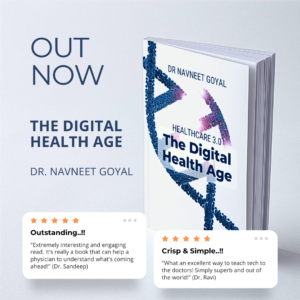Is Cross-Market Mergers in Healthcare a Better Option?
Cross-market mergers can be a viable option in healthcare systems in the upcoming future.
The cross-market merger system
Hospitals or health systems from different parts of the country join forces in a cross-market merger, which means they don’t directly fight for patients. Let’s look into the many possible outcomes and facts of these deals.
What happens in the cross-market merger system?
When these big health systems come together, there are some things that might happen:
- Increased Bargaining Power: When two or more businesses come together, they may have more power when dealing with insurers. Because of this, they might charge more for their services, which could make them more expensive for people to use and possibly lower the level of care.
- Effects on Innovation and Efficiency: When two or more businesses join together, the motivation for innovation and efficiency may go down. If there aren’t as many other service providers, there may not be as much drive to make services better or find cheaper options.
- Problems for Newcomers: These mergers might make it harder for smaller or new companies to get into the healthcare business. Larger and more powerful health systems can be hard to deal with, which makes it harder for newbies to get established.
- Behavior Coordination: Once the health systems have merged, they may work together to do things in different places. They might share private information and set the same rules or prices for everyone, which could make it harder for people to choose what to buy.
- Possible Benefits: Even though there are worries, the combined health systems may also have some benefits. Some of these are economies of size and scope, better management of the health of the population as a whole, and better quality and access to healthcare services.
It’s important to know that these effects can happen at the same time. The outcome of a merger can be different based on things like the specifics of the merger, the markets involved, and the rules and regulations in place. So, it’s important to look at each merger on its own, taking into account both the pros and cons for customers and society as a whole.

How do cross-market deals work?
To go into more detail, let’s look at some of the things that affect how cross-market deals work:
- Market Characteristics: The type of healthcare market in each area is very important. If there isn’t enough competition in a market already, a merger could make things even less open to customers. In competitive markets, on the other hand, a union could bring about good changes, like making things run more smoothly.
- Regulatory Environment: Antitrust rules and close scrutiny by regulators can have a big effect on how a merger turns out. The government needs to check if the new company will have an unfair edge, hurt consumers, or stop competition. Depending on what they find, they may agree to the merger with conditions or say no to it totally.
- Integration and Synergy: How well two companies can combine their cultures and ways of doing things is often what determines the success of a cross-market merger. The benefits of the merger are more likely to show up if the merger goes smoothly and works well.
- Consumer Impact Studies: Before approving a merger, regulators may ask for studies to look into how it might affect customers. These studies can help us guess what will happen to costs, the quality of care, and how easy it is to get services.
- Protecting Against Bad Effects: If bad effects are found, the merged groups can take action to fix them. For instance, they might take steps to make sure prices stay fair or put money into research and development to keep pushing the boundaries of what’s possible.
Healthcare mergers have caught the attention of both regulators and scholars. However, there have been times when the Federal Trade Commission (FTC) looked closely at certain deals because they might hurt competition.. It is the FTC’s job to make sure that deals don’t hurt consumers or competition.
Conclusion
In short, cross-market mergers between big health systems affect the healthcare business, patients, and society as a whole in big ways. They can be good, like making things run more smoothly and improving the level of care, but they can also be bad, like lowering competition and making prices go up. Because of this, each merger should be carefully looked at, taking into account the specifics and possible effects, to make sure that everyone benefits. In the healthcare market, regulatory oversight is very important for finding a balance between encouraging new ideas and protecting customers’ rights.
I have published a book on Amazon on Digital Health; If this seems interesting to you, you can purchase the paperback from the publishers or use your Kindle to read the same in digital format. The links are provided below:


